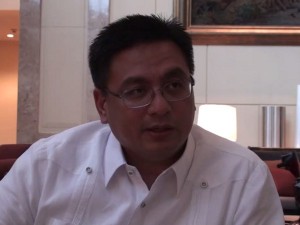MANILA, Philippines — The Bureau of Customs filed drug smuggling charges before the Department of Justice against a South African national who was caught carrying 8.5 kilos of cocaine by alert BOC personnel at the Ninoy Aquino International Airport (NAIA) two weeks ago.
Customs Commissioner Ruffy Biazon said they have filed criminal charges against suspected drug mule Debbie Reyneke, citing the Department of Finance-attached agency’s intensified campaign against the use of the country’s ports of entry in the illegal drug trade.
“This should send a strong warning to international drug syndicates that the Philippines is not a place for illegal and hazardous drugs,” he said, stressing the BOC would not allow any foreign drug ring make the country one of their markets.
In a statement, the former Muntinlupa City legislator also said the BOC would “prosecute and seek for the maximum penalties allowed by law to all those caught attempting to smuggle illegal drugs into the country, if only to spare the lives of many young Filipinos.”
“Reyneke’s arrest on October 23 upon her arrival from Dubai on board an Emirates flight was the result of the bureau’s enhanced intelligence network,” said Biazon.
He disclosed that “Customs officials at the NAIA were already alerted of her arrival and the possibility of having illegal drugs in her luggage. When her bag was inspected, it yielded food packs containing a substance that tested positive during initial tests for the general narcotics alkaloid.”
“However, further tests conducted by the Philippine Drug Enforcement Agency confirmed the substance was actually cocaine,” he said.
Ma. Edita Tan, Customs deputy commissioner for the Revenue Collection and Monitoring Group, said they would “closely monitor the progress of the case (against Reyneke).”
“We will do everything within our means to get a conviction as we need to send the message to drug smugglers that they are not welcome in the Philippines,” she added.
Earlier, Biazon told the Philippine Daily Inquirer the bureau would intensify further its drive against international drug syndicates using the NAIA and other airports nationwide in their illegal trade.
The BOC “would double its efforts, mainly in the monitoring of arriving passengers, especially those coming from high-risk countries for illegal drugs. That is, after we have seen the shift in the modus operandi of international drug traffickers.”
“Employing drug mules, they are now using the airports for their illegal drug trade,” he said, noting during the last two quarters of 2012 alone, about 20 kilos of methamphetamine hydrochloride, or shabu worth over P163 million were seized by BOC personnel from seven foreign nationals at the NAIA.
